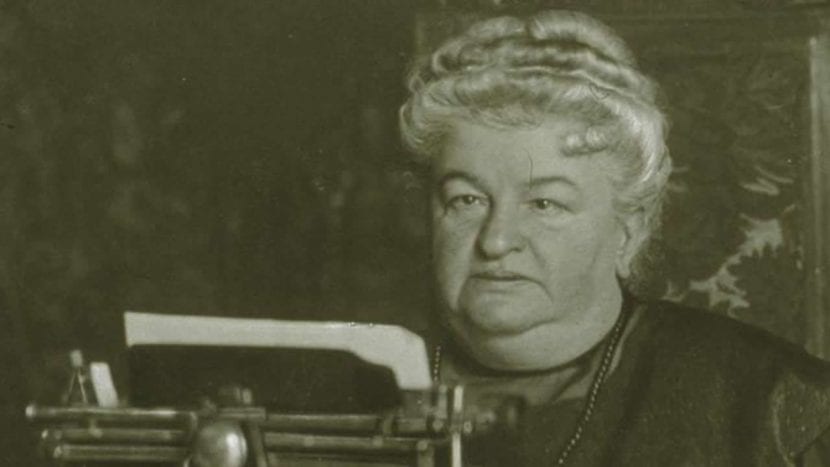
Emilia Pardo Bazan.
The Countess of Pardo Bazán She was the most important female intellectual figure in Spain during the last decades of the XNUMXth and early XNUMXth centuries.. Thanks to the rich educational training provided by her father, Emilia Pardo Bazán stood out as a writer, journalist, playwright, translator, lecturer and pioneer of women's rights.
His literary work is very broad, encompassing novels, poetry, essays, editing and criticism. Controversy was a recurring situation in his life as he always wielded avant-garde artistic approaches (as a precursor to naturalism) and firmly defended gender equality. For this reason, despite accumulating more than enough merits, she was never admitted to the Royal Spanish Academy.
Childhood, youth and first jobs
Emilia Pardo-Bazán and de la Rúa Figueroa He was born on September 16, 1851, into an aristocratic family from La Coruña, Spain. She was a precocious writer, since her adolescence she showed a great predisposition towards reading and intellectual work. At the age of 13 he wrote his first novel, Dangerous hobbies (published in 2012).
After turning 16 years old (1868) she married José Quiroga and went to live in Madrid. The couple traveled extensively in Europe; According to the chroniclers, it was a fairly harmonious union. Doña Emilia published the chronicles of this journey in the newspaper El Imparcial, also in her book For Catholic Europe (1901), where he recommends traveling at least once a year for educational self-training, as well as expressing the need for "Europeanization" of Spain.
The couple had three children: Jaime (1876), Blanca (1879) and Carmen (1881). During that period she made her first publications as a writer, the essay Critical study of the works of Father Feijoo and the book of poems James (dedicated to his first son), both works from 1976. Also, in 1877 he expressed his position contrary to Darwin's theories on the origin of species in the magazine Christian Science. If Emilia Pardo Bazán also stood out in something, it was because of her famous phrases.
In the following years, Emilia Pardo Bazán was gaining notoriety with, Pascual López, autobiography of a medical student (1879) and A honeymoon (1881), two romantic novels in a realistic narrative style. With the latter, clear features appear that place the Galician aristocrat as one of the forerunners of Naturalism, thanks to the detailed descriptions of the physiology of natural elements and characters.
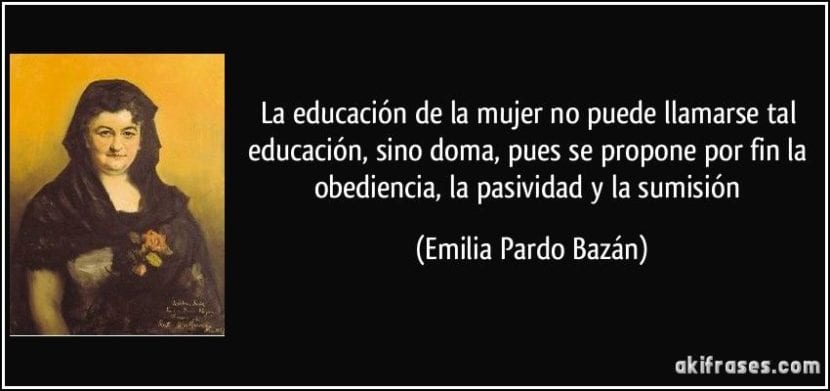
phrase by Emilia Pardo Bazán.
Literary maturity
As of 1881, Emilia Pardo Bazán would maintain an epistolary communication with Benito Pérez Galdós. Initially it was a literary relationship, however, after the publication of The burning question (1883) a very strong controversy was unleashed around the book that scandalized her husband and led to a friendly separation. Even many of her closest friends attacked the Countess for being a supposedly atheistic work, favorable to "French pornography."
A year before (1882), Doña Emilia published The rostrum, a work with socio-political features made with naturalistic techniques, considered one of his first works to vindicate the rights of women. Additionally, in this work he incorporates the proletariat as an important element of the argument.
It is a stage in which she defends Spanish literature and introduces the naturalistic proposal through his journalistic essays on Émilie Zola, published in the magazine Time. In 1885 the launch of The young lady, referring to marital crisis.
In 1886 the most recognized novel by Emilia Pardo Bazán appeared, The pazos de Ulloa. It is a naturalistic work set in the Galician countryside that reflects the clash between the refined society of the cities and the people from the most backward rural areas. There, the characters reflect Zola's premises about the influence of the environment on human etiology.
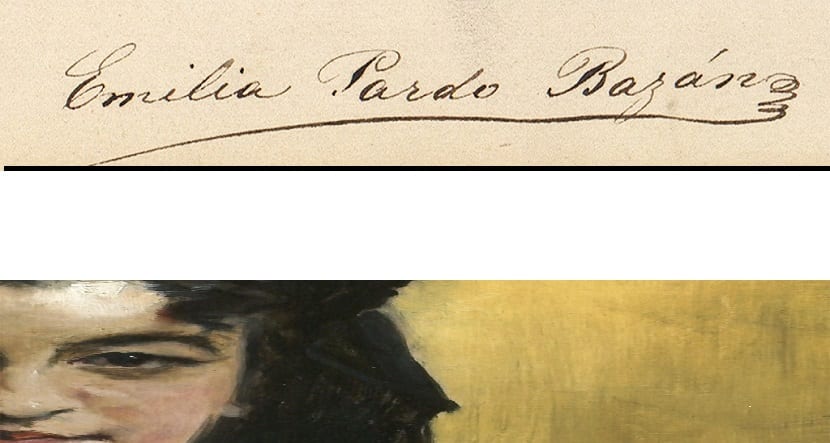
The pazos de Ulloa consecrated Emilia Pardo Bazán as one of the great literary figures of Spain of all time. The novel deals with a realistic look at the decline of the role of the aristocracy in society. In 1887 he published Mother nature, a naturalistic novel that tells of the incestuous infatuation between two young people who do not know that they are brothers.
Distancing from naturalism
After separating from her husband, she was able to freely dedicate herself to exploring his intellectual inclinations. She frequently intervened in political journalism and in the fight for female emancipation. In this way, essays such as The revolution and the novel in Russia (1987) o A spanish woman (1890), acclaimed by the public and literary critics.
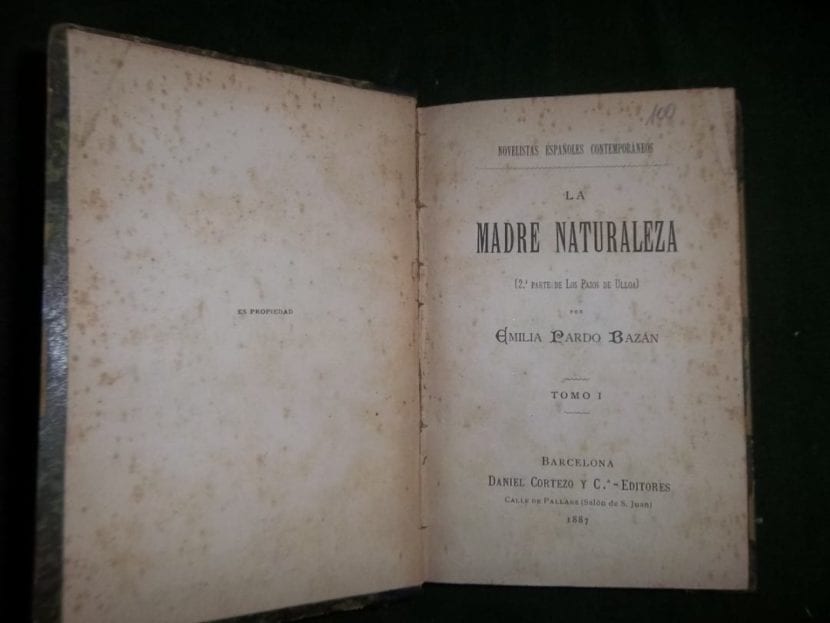
Mother Nature, book by Emilia Pardo Bazán.
Although he never ceased to admire the doctrines of Zola, the 1890s marked the approach of Emilia Pardo Bazán towards idealism and symbolism, to the detriment of naturalism. This evolution is confirmed in works such as A christian (1890) Chosen stories (1891) Mrs. Milagros (1894) Chimera (1895) Memoirs of a Bachelor (1896) Sacred-profane tales (1899) The black mermaid (1908) and Sweet owner (1911), among others.
Another reason that led Pardo Bazán to distance himself from naturalism was the associations with racial determinism, latent in their references to racial heritage and racial atavism. It was a position that came to justify in The artistic illustration (1899), concerning the anti-Semitism of the Dreyfus affair. However, it is necessary to clarify that she never defined herself as a racist (a fact confirmed by several literary specialists).
New Critical Theater
After the death of her father in 1890, Doña Emilia used the vast paternal inheritance to finance the creation of New Critical Theater.Said publication was a social and political magazine written by her in honor of her admired Benito Jerónimo Feijoo. It encompassed essays, literary criticisms, information on other writers and political research and social studies in order to show the intellectual reality of his time.
During its early days, New Critical Theater was very well received due to its direct, concise and sincere style. But this magazine brought her new detractors (especially in the conservative world of the Spanish aristocracy), who called her stoic and revolutionary (hint of rebellious, just for being a woman).
After three years, Pardo Bazán said goodbye to his readers arguing that the magazine had caused him "loss of money and humor."
Legacy of Emilia Pardo Bazán
Violence was a constant element in the works of the Countess. More than a resource to hook the reader through detailed descriptions, it was a way of denouncing the physical, emotional and psychological abuse suffered by the most vulnerable in society.
Although it did not exclude forms of aggression towards adult male characters, its most impressive rawness was reflected in the abuses suffered by infants and - especially - women. For this reason, she is considered one of the first activists for women's rights. The quality, versatility, and vastness of his work were not fully appreciated until several decades after his physical disappearance.
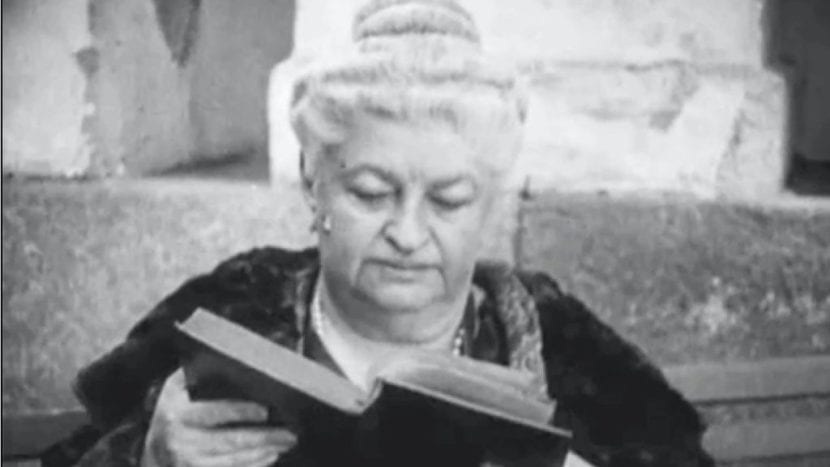
Emilia Pardo Bazán in a reading.
Despite his status and intellectual recognition, until the end of its days the Spanish macho society did not stop attacking to Bazán. The writer was denied the spaces that she more than earned through her work, especially at the Royal Academy (she was rejected three times).
Emilia Pardo Bazán passed away on May 12, 1921, at number 27 Calle de la Princesa, Madrid.